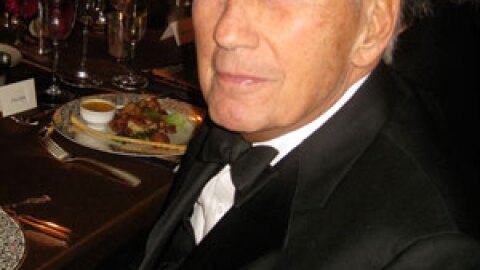In Classical music, where does the power lie? Some would say those who control the purse strings run the show. That is true, generally speaking. Who wields the big stick, however?
Ah... a clue!
The conductor?
Nope.
Yes, the conductor controls the overall sound of the orchestra. The musicians do what the conductor asks. (Is that laughter I hear?) According to some, however, for some 30 years, the most powerful person in Classical music was Ronald A. Wilford.
Who?
Ronald A. Wilford, who died recently at the age of 87, did not play an instrument, wave a baton, or run an orchestra. Yet, when you begin discussing orchestras and conductors during the heyday of live and recorded orchestral music, Wilford is hard to avoid.
When Wilford was at the helm of Columbia Artists, his artist roster was filled with name-brand talent. In a recent article by writer/critic Norman Lebrecht, he wrote:
Wilford had raised (Sir Colin) Davis from English obscurity to a well-paid position in Munich. He put Riccardo Muti into Philadelphia, Neville Marriner into Minnesota, Seiji Ozawa into Boston. André Previn, a Hollywood pianist, he ran up through boondocks orchestras and signed to the LSO. He controlled the careers of 111 music directors. No fewer than 100 signed his 60th birthday card.
James Levine at the Met? Groomed and placed by Wilford. The list is impressive. Among his clients - Herbert von Karajan, James Levine, Claudio Abbado, Seiji Ozawa, Riccardo Muti, Kurt Masur and Colin Davis. This gave Wilford enormous influence in concert halls around the world for decades.
As the world - and entertainment tastes - changed, so Wilford's grip began to loosen. Musicians now choose Music Directors. Gigantic companies with huge stables of stars have given way to smaller, more focused organizations. It is difficult to imagine one person with that kind of control anymore. However, for a chunk of what some would call the "golden age" of Classical music, Ronald A. Wilford could make or beak a career as he sat at the helm of a musical empire.
My colleague Christopher Purdy took a look at Wilford from a slightly different point of view, one which will resonate with those who work in the business world. He also recommends a book by Norman Lebrecht which looks to be a page turner.


